Tips on Helping Your Child Build Relationships
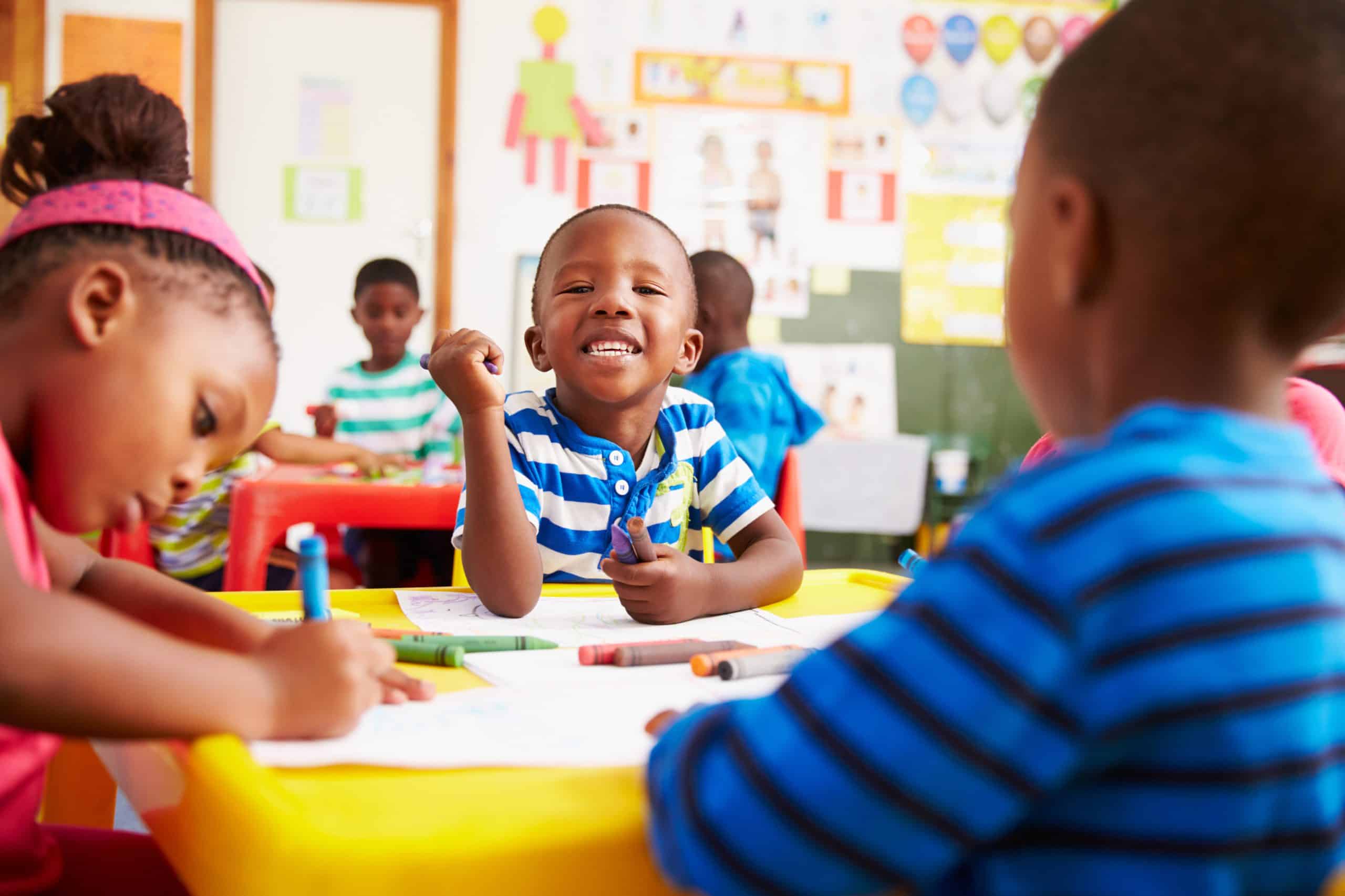
Through relationships, children discover who they are and learn to understand others. Learn how you can help your infants and toddlers develop strong relationships with the people in their lives.
Relationship-building describes the process of establishing emotional connections with others, starting from birth, which are based on trust and intimacy. Through relationships, children discover who they are and learn to understand others. When young children experience people helping, understanding, and enjoying them, they approach the world with openness and enthusiasm, and they grow to be responsive and caring people.
Babies are born with a drive to relate to and connect with others, and they continue to develop the social skills necessary to form strong, healthy relationships throughout their lives:
- A newborn gazes at her mother’s face as she breastfeeds. She recognizes her mother as the special, loving person who is always there for her, and calms down almost immediately when her mother picks her up and holds her close. This baby is learning that she is loved and that she can trust others to care for her and treat her well.
- A 6-month-old laughs and laughs as his father holds a napkin over his face, and then drops it to say, “Peek-a-boo!” Whenever his father tries to put the napkin back on the table, the baby says, “eh, eh, eh” to let his father know he wants him will hold up that silly napkin again. This baby is learning that he can connect with a loved one through a fun activity like this one. He is discovering that spending time together is satisfying and pleasurable.
- A 20-month-old wants to cut his own fruit for snack. His grandmother says no. He stamps his feet and sobs. His grandmother tells him she has an idea: She gives him a dull butter knife and guides his hand to help him cut some melon. This toddler is learning that his interests and needs are important and what it feels like to be understood by another person.
- A 2 ½-year-old sees her brother fall off his bicycle and begin crying. She runs over and starts to rub his back, like she’s seen her mommy do. This toddler is learning how to empathize with, or understand, another’s feelings and experiences.
Below are some ideas for nurturing relationship-building skills in infants and toddlers.
Allow for Unstructured, Uninterrupted Time With Your Child Each Day
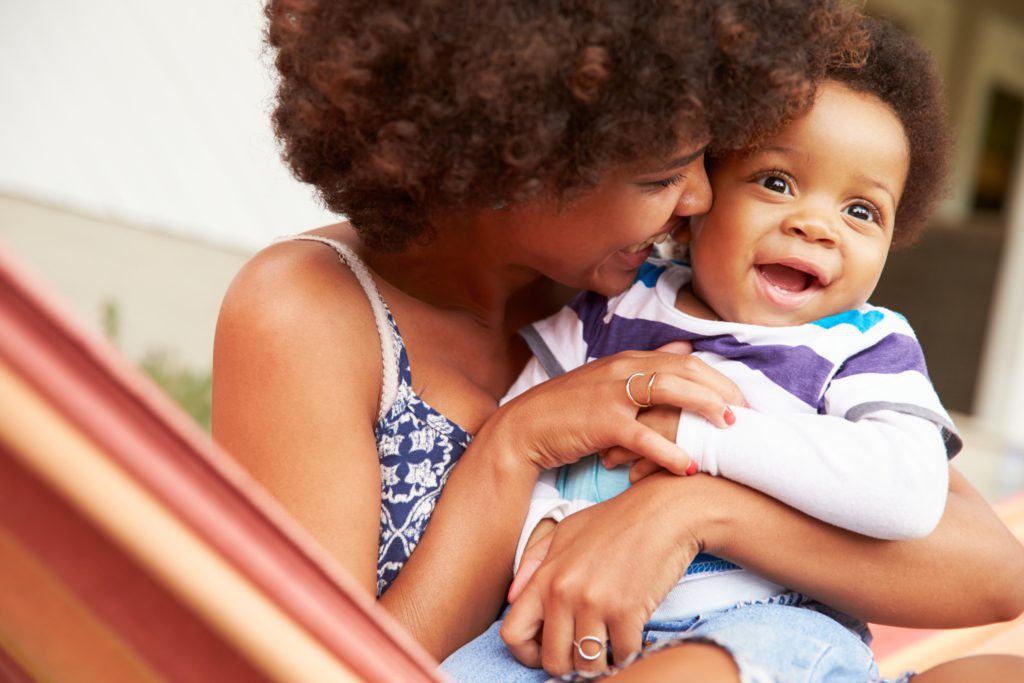
Let her be the leader in deciding what to play. Don’t multi-task during this special playtime—just be there with your child one-on-one. She will feel loved and special with your full attention. When you have to do turn to daily chores, you can stay connected with your toddler by talking with her or having her help with the activity, giving her “jobs” she can handle. With your baby, you can narrate what you’re doing and offer her interesting, related objects to keep her connected to you—like giving her a wooden spoon to play with while you’re cooking.
Let Your Child Know You’re Interested in His Activities
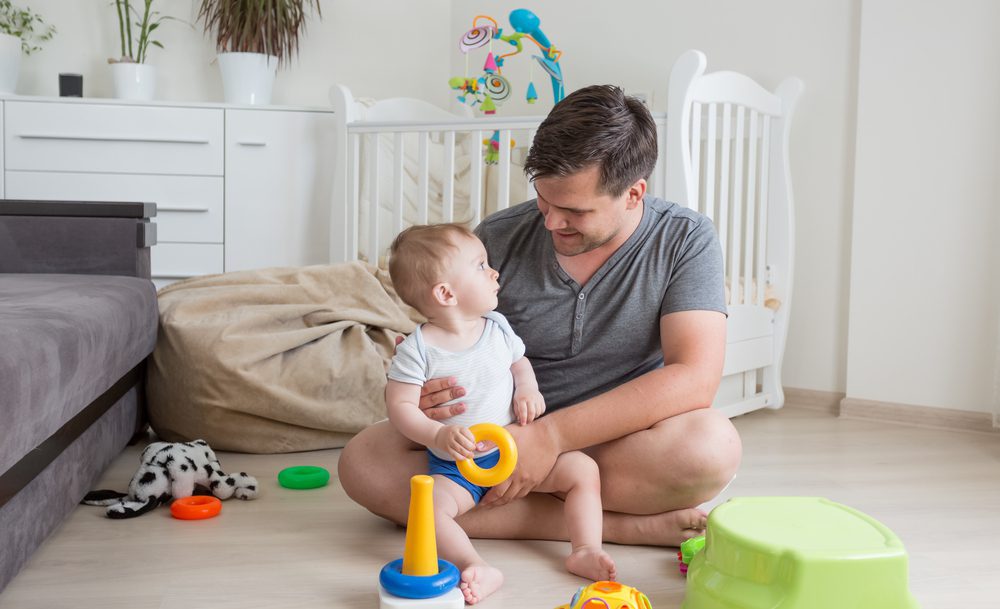
Show a sincere interest in your child—whatever he is doing. Your attention is what he desires and is thrilled to receive. You can show your interest by commenting on or describing what he is doing: “You are using so many beautiful colors to make that drawing.” Or, get involved by following his lead. If he is putting blocks in a container, see if he’ll take turns with you, or if you can build something together. This will also help him learn about the value and joy of back and forth play which is an important aspect of all successful relationships.
Encourage Children to Express Their Feelings in Age-Appropriate Ways
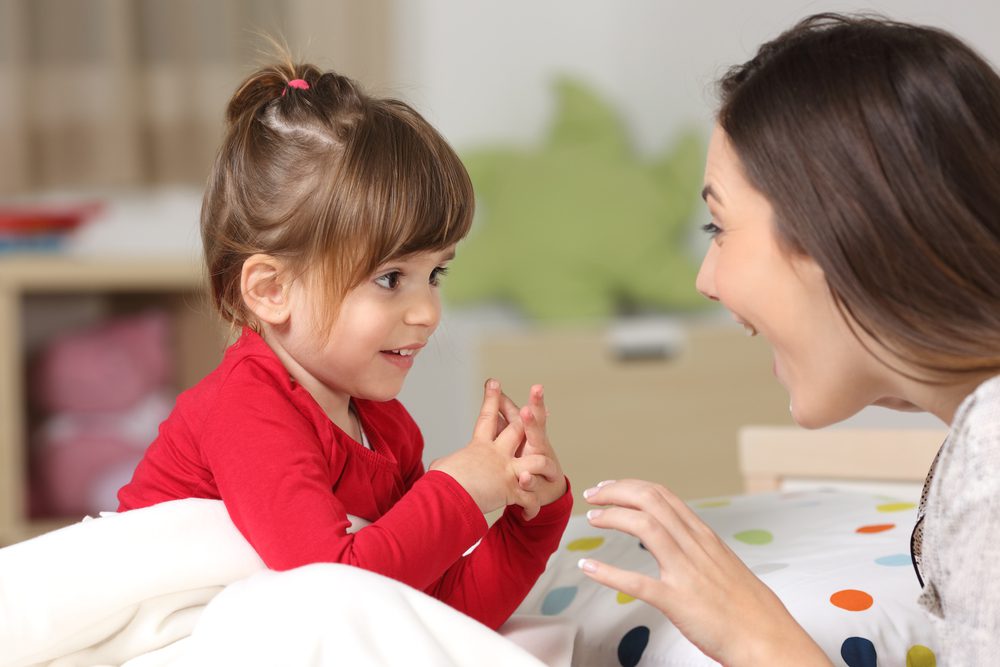
Forming positive, healthy relationships depends on the ability to show feelings appropriately and to recognize the feelings of others. Teach children acceptable ways to vent anger, like drawing an angry picture, running in the yard, or tossing a pillow on the floor. Label your own feelings, “I am happy because you helped me clean up,” or, “I am sad that Grandma had to fly home.” It is important for children to know that you have feelings too, but that there are ways to cope with them so you can feel better.
Respect Your Child’s Feelings
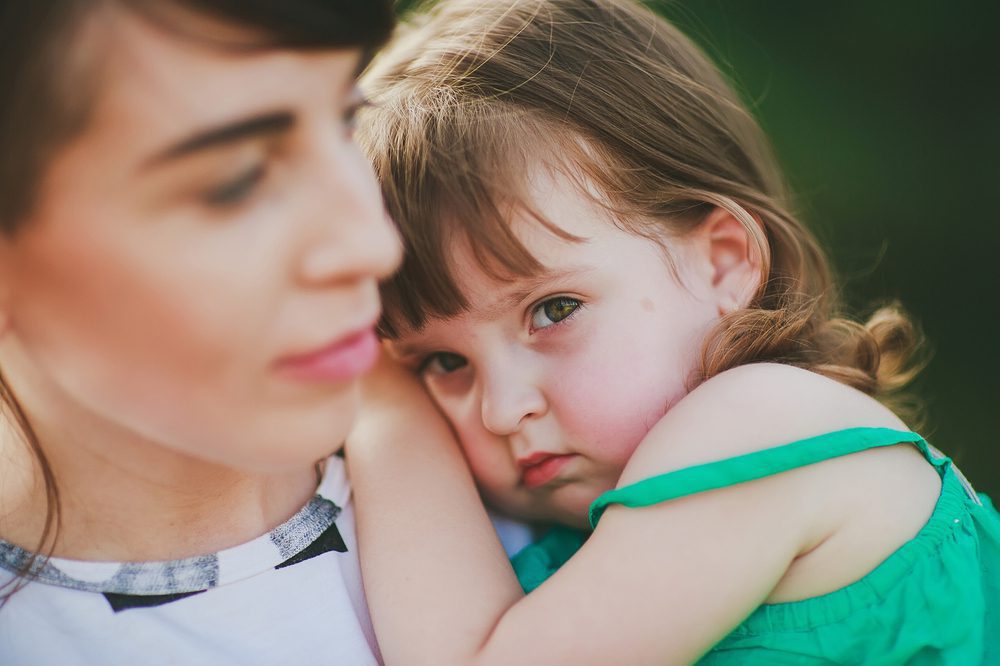
This teaches your child to trust her instincts. It can also help her work through powerful or difficult feelings and allow her to move on. Knowing you respect her feelings teaches your child empathy and respect for others, which are important elements in any relationship. Accepting her feelings, without minimizing them or making fun, also increases the chances that she will share more with you as she grows.
Play Games that Explore Feelings
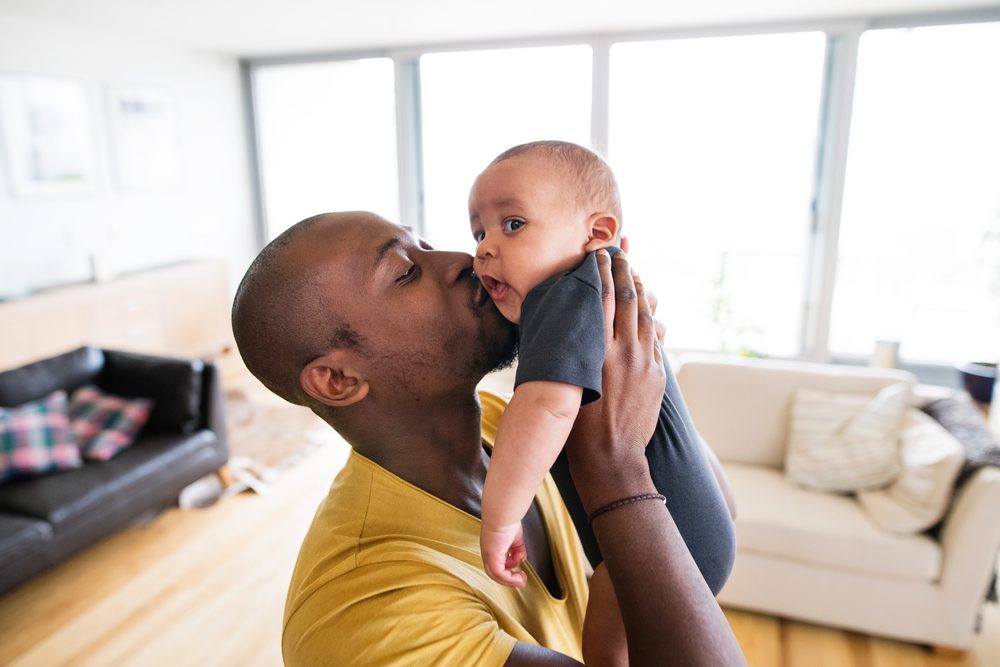
Use puppets to act out a young child’s typical frustrations or fears, like having to share toys with a playmate, adjusting to a new baby, or separating from loved ones. Make drawings or hats for different emotions, and talk about pictures in books that communicate feelings. Also, watch what your child “tells” you during his play—it can be a window into his inner thoughts and feelings. For example, if your child dresses up in mommy clothes and acts out leaving her teddy bear at the babysitter’s house, she may be wondering about separations. You can help her think through these big ideas and feelings by playing along and perhaps reminding her that, while Teddy misses his mama, he knows his mama always comes back.
Provide Opportunities for Your Child to Develop Relationships With Peers
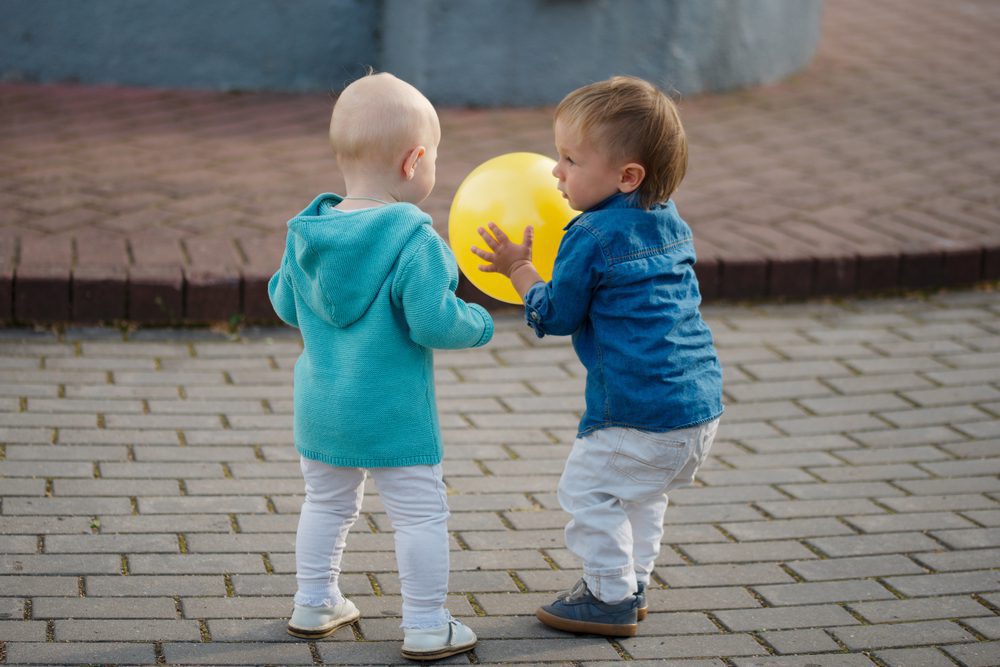
Children need practice in order to learn to share, take turns, resolve conflict, and feel the joy of friendship. Playing together gives children all of this—plus a chance for parents to connect with others adults, too! At this age, being present during play-dates is important as children often need help learning and practicing their new friendship skills. And it’s a good rule of thumb to keep playdates short for little ones—45 minutes-to-an-hour is about right for most toddlers. For older toddlers, you can use their playtime with peers to nurture relationship-building skills by:
- Suggesting, when appropriate, that children turn to peers for assistance or to get answers to their questions: “You are wondering how to get the little doll to sit in the high chair? Why don’t you ask Jeremy? I just saw him feeding her a few minutes ago.”
- Asking children to imagine how their behavior might affect others: “I see that you told Greta that she can’t play ball with you. How do you think that made her feel?”
- Encouraging children to work in groups or as teams, when appropriate: “Sam and DeShawn, could you please put the cars away? Then you can help me get your snack ready.”
- Helping children to see others’ points of view, which encourages empathy: “Casey is feeling sad because his mom had to go.”
Limit TV and Other “Screen Time”

Television takes time away from hanging out together—and time away from children playing, solving problems, interacting, and actively learning about the world around them. When your child does watch, you can enhance the experience by talking with your child about the show—what she thought it was about, which characters she liked and disliked, how it made her feel. You can also act out the story as she understood it, use puppets to tell the story, or make up your own story together.
